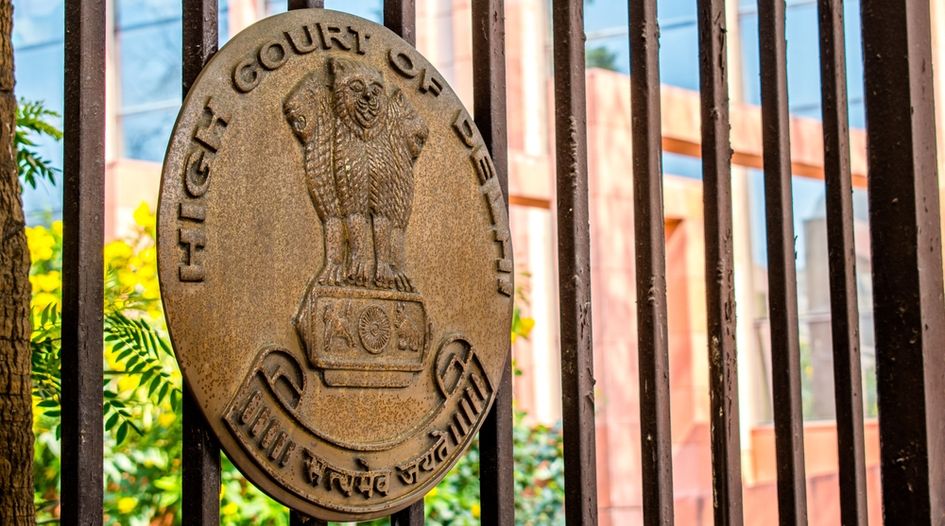Alcohol labelling spat highlights jurisdictional limits

In Radico Khaitan Ltd v Nakshatra Distilleries & Breweries Ltd (FAO OS (COMM) 286/2019), the Delhi High Court has held that jurisdictional limitations prevent it from ruling on a trademark dispute between competitors in India’s alcoholic beverages industry.
The initial suit
Radico Khaitan Ltd’s initial suit for a permanent injunction before the Delhi High Court arose from its desire to restrain Nakshatra Distilleries & Breweries Ltd and another from infringing its GOA trademark. The suit covered the launch, sale, manufacture, marketing and any other business activity related to alcoholic beverages, including but not limited to gin, rum and vodka, following the defendants’ adoption of the marks GOA and GO4 and application for excise approvals for associated product labels.
The appeal
Radico Khaitan challenged a single judge of the Delhi High Court’s ruling on the initial suit permitting Nakshatra Distilleries & Brewers Limited and another to file a trademark application under Order VII Rule 11 of the Civil Procedure. In their reasoning, the judge specifically cited the court’s lack of jurisdiction to hear the suit.
In its appeal, Radico Khaitan further objected to the respondents’ filing of an excise application with the Commissioner of State Excise, Maharashtra State, and not the corresponding authorities in Delhi. However, these objections were also rejected, and the respondents’ labels were approved.
Shortly after, Radico Khaitan applied for an injunction. The respondents sought dismissal of this for lack of jurisdiction.
The respondents’ successful claim
The respondents contended that:
- they were neither residing in Delhi nor carrying on business within the jurisdiction;
- no cause of action had risen within the Delhi High Court’s territorial jurisdiction; and
- their registered offices and manufacturing/marketing activities solely existed within the State of Maharashtra.
The respondents further argued that Radico Khaitan’s suit covered alcoholic beverages, which are a state excisable product that can only be marketed and sold with necessary label approval from the corresponding state excise department – which the respondents had obtained from State Excise Department of Maharashtra, not Delhi.
These jurisdictional contentions conflicted with Radico Khaitan’s claim that while its cause of action – the infringement of its trademark with regard to alcoholic beverages – did not arise in Delhi, the location of its principal office, the dynamic effects of the respondents’ actions affected the appellant’s business in the jurisdiction. Radico Khaitan also asserted the likelihood that the respondents could eventually launch their products in Delhi, further infringing on its mark.
The Delhi High Court’s ruling
In its ruling on the suit’s appropriate jurisdiction, the Delhi High Court reiterated the analogy of its division bench in Ultra Home Construction Pvt Ltd v Purushottam Kumar Chaubey (2016; 65; PTC 469; DB) after considering the judgment of the Supreme Court in Indian Performing Rights Society Ltd v Sanjay Dalia (2015; 10; SCC 161).
Consequently, the court detailed the four jurisdictional possibilities it considered in its review of the appeal:
- When a plaintiff has a sole office, but the cause of action arises in a different location, it can file a suit in the sole office’s jurisdiction.
- When a plaintiff has a principal office in one location and a subordinate or branch office in another, and the cause of action arises at the principal office, the plaintiff may only sue in the principal office’s jurisdiction.
- When a plaintiff has a principal office in one location and the cause of action arises in another – where their subordinate office is located – they are deemed to have conducted business only at the subordinate office and, therefore, can only file a suit in its jurisdiction.
- When the cause of action arises neither in the location of the principal nor subordinate office, the plaintiff is deemed to have conducted business through its principal office and can only file suit in its corresponding jurisdiction.
According to the Delhi High Court, Radico Khaitan’s suit fell under situation three, as the company possessed a principal office in Delhi and a subordinate office in Mumbai. The respondents had applied for and obtained label approvals within the Maharashtra state, where Mumbai is located, not Delhi, and proposed to launch their products only in Maharashtra.
The respondents’ case was further bolstered by their approved product labels, which specifically stated “for sale in Maharashtra only”, dictating that the plaintiff’s cause of action could only arise within that jurisdiction.
In consideration of this, the Delhi High Court upheld the single judge’s initial decision, confirming that it lacked the necessary jurisdiction and that only the courts of Mumbai, in Maharashtra, could hear the suit.
This is an Insight article, written by a selected partner as part of WTR's co-published content. Read more on Insight
Copyright © Law Business ResearchCompany Number: 03281866 VAT: GB 160 7529 10

